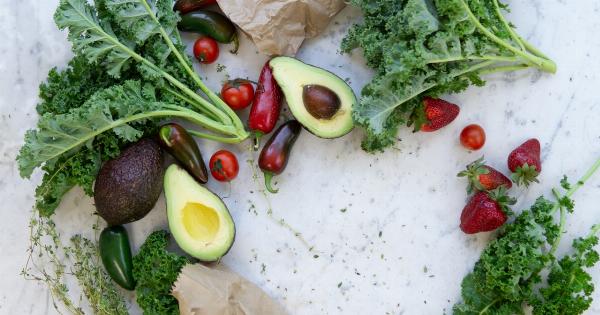When it comes to our health, diet plays a crucial role. With so many food options available, it can be a challenge to determine which ones are truly healthier.
In this crash test, we will compare various foods and analyze their nutritional profiles to find out which ones are the healthiest choices for our bodies. So buckle up and get ready for a detailed analysis of different foods to unveil the ultimate winners for our well-being.
1. Fruits vs. Processed Sugary Snacks
Fruits are known for their abundance of essential vitamins, minerals, and fiber. On the other hand, processed sugary snacks are often laden with unhealthy additives and excessive amounts of sugar.
Consuming a diet rich in fruits supports overall health, helps in weight management, and reduces the risk of chronic diseases like heart disease and diabetes. In contrast, excessive consumption of processed sugary snacks can lead to various health problems including obesity, tooth decay, and an increased risk of developing metabolic disorders.
2. Whole Grains vs. Refined Grains
Whole grains contain all parts of the grain, including the bran, germ, and endosperm. They provide a wide array of nutrients like dietary fiber, B vitamins, and minerals.
Refined grains, on the other hand, go through a milling process where the bran and germ are removed. This results in the loss of several vital nutrients, including fiber. Choosing whole grains over refined grains lowers the risk of heart disease, supports digestive health, and helps maintain a healthy weight.
3. Lean Proteins vs. Processed Meats
Lean proteins, such as skinless poultry, fish, beans, and legumes, are excellent sources of high-quality protein without excessive amounts of saturated fats. They provide essential amino acids and are crucial for building and repairing body tissues.
On the other hand, processed meats like hot dogs, sausages, and bacon are loaded with unhealthy additives and preservatives. Consuming excessive amounts of processed meats has been linked to an increased risk of heart disease, cancer, and other chronic diseases.
4. Healthy Fats vs. Trans Fats
Healthy fats, such as those found in avocados, nuts, seeds, and olive oil, are essential for various bodily functions. They support brain health, help in hormone production, and are crucial for absorbing fat-soluble vitamins.
On the contrary, trans fats are artificial fats created through a process called hydrogenation. They increase the risk of heart disease, raise LDL (bad) cholesterol levels, and lower HDL (good) cholesterol levels. Opting for healthy fats over trans fats promotes heart health and overall well-being.
5. Fresh Vegetables vs. Canned Vegetables
Fresh vegetables are packed with nutrients and are incredibly versatile in culinary applications. They are rich in vitamins, minerals, and dietary fiber, which are vital for optimal health.
Canned vegetables, however, often contain added sodium and preservatives to prolong shelf life. While they still offer some nutritional benefits, the levels of vitamins and minerals may be lower compared to fresh counterparts. Prioritizing fresh vegetables in your diet ensures you get the maximum nutritional value.
6. Natural Sweeteners vs. Artificial Sweeteners
Natural sweeteners like honey, maple syrup, and stevia offer a more wholesome alternative to refined sugar. They retain some of their nutritional value and come with fewer calories.
Artificial sweeteners, on the other hand, have no nutritional value and are often linked to health concerns like weight gain, increased appetite, and a higher risk of metabolic disorders. Choosing natural sweeteners in moderation is a healthier option for those with a sweet tooth.
7. Water vs. Sugary Beverages
Water is the ultimate hydrator and an essential component for various bodily functions. It helps regulate body temperature, support digestion, and maintain overall wellness.
Sugary beverages, such as sodas, energy drinks, and sweetened juices, offer little to no nutritional value and are packed with excessive amounts of added sugars. Regular consumption of sugary beverages has been associated with weight gain, tooth decay, and an increased risk of chronic diseases like diabetes. Choosing water as your go-to beverage promotes overall health and reduces unnecessary calorie intake.
8. Organic vs. Non-organic Produce
The debate between organic and non-organic produce continues to spark discussion among health-conscious individuals. Organic produce is grown without the use of synthetic pesticides, fertilizers, or genetically modified organisms (GMOs).
While some studies suggest that organic produce may offer slightly higher nutrient content, the overall difference in health benefits between organic and non-organic produce is still a topic of debate. Regardless, consuming a diet rich in fruits and vegetables, regardless of their organic status, is beneficial for one’s health.
9. Homemade Meals vs. Fast Food
Homemade meals are typically prepared with fresh ingredients and allow you to control the quality and quantity of various components. This provides a healthier alternative to fast food, which is often high in unhealthy fats, sodium, and added sugars.
Regular consumption of fast food has been linked to obesity, heart disease, and other chronic health conditions. Prioritizing homemade meals allows you to make healthier choices and promote your overall well-being.
10. Nutrient-dense Snacks vs. Empty-calorie Snacks
Nutrient-dense snacks, such as fresh fruits, nuts, and yogurt, offer a wide range of essential vitamins, minerals, and antioxidants. They satisfy hunger and provide sustained energy.
On the other hand, empty-calorie snacks like chips, cookies, and candies provide only excessive calories with little to no nutritional value. Regular consumption of empty-calorie snacks can lead to weight gain and nutrient deficiencies. Choosing nutrient-dense snacks supports a healthy diet and helps meet your nutritional needs.
Conclusion
After this comprehensive crash test, it is evident that opting for healthier food choices significantly contributes to our overall well-being.
Focusing on fruits, whole grains, lean proteins, healthy fats, fresh vegetables, natural sweeteners, drinking water, consuming a balance of organic and non-organic produce, preparing homemade meals, and opting for nutrient-dense snacks will help us lead a healthier life. Remember, small changes in our diet can make a big impact on our long-term health.






























